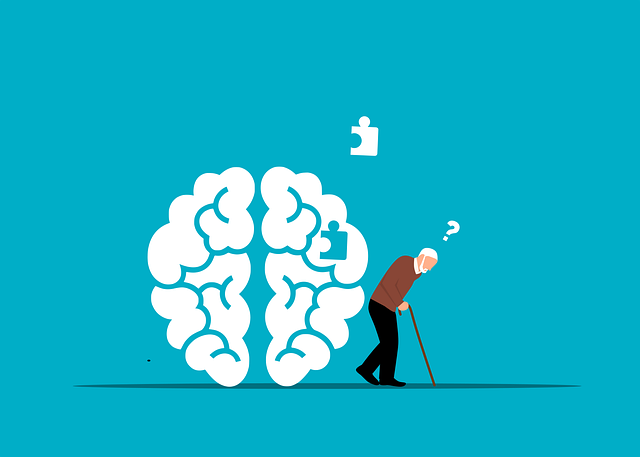Arvada Family Counseling Therapy offers Social Skills Training as a holistic, game-changing approach to mental health care. This specialized program addresses the unique social challenges faced by individuals with mental health conditions, such as isolation, anxiety, and communication difficulties. Through individualized sessions, therapists teach effective communication, empathy, and interpersonal connections, empowering clients to manage their conditions proactively. The result is enhanced positive thinking, improved stress management, and better long-term mental health outcomes, all while fostering meaningful relationships through practical strategies like active listening, self-awareness exercises, and community outreach programs.
Social skills training is a powerful tool in supporting individuals with mental health conditions. This comprehensive guide explores the intricate link between social abilities and mental wellness, highlighting common challenges faced by those navigating both. We delve into counseling therapy’s role in fostering social competence and offer practical strategies to enhance interactions.
Arvada Family Counseling Therapy stands out as a holistic approach, dedicated to improving social skills and overall well-being for clients dealing with mental health issues.
- Understanding the Link Between Social Skills and Mental Health
- Identifying Challenges: Common Social Barriers for Individuals with Mental Health Conditions
- The Role of Counseling Therapy in Building Social Competence
- Practical Strategies for Enhancing Social Interaction and Communication
- Arvada Family Counseling Therapy: A Holistic Approach to Improving Social Skills and Overall Well-being
Understanding the Link Between Social Skills and Mental Health

Social skills training has emerged as a powerful tool in addressing mental health conditions, particularly in Arvada Family Counseling Therapy settings. Understanding the intricate link between social skills and mental health is crucial. Effective communication, empathy, and interpersonal connections are not just societal norms; they are foundational to overall well-being and play a significant role in managing and improving mental health.
In today’s fast-paced world, where mental wellness podcast series production often dominates conversations, it’s essential to recognize that fostering positive thinking and stress management techniques can be significantly enhanced through improved social skills. By teaching individuals to navigate relationships, express emotions effectively, and build a support network, therapists in Arvada Family Counseling can empower clients to manage their conditions more proactively. This holistic approach not only complements traditional therapy methods but also paves the way for lasting improvements in mental health outcomes.
Identifying Challenges: Common Social Barriers for Individuals with Mental Health Conditions

Many individuals with mental health conditions face unique challenges when it comes to social interactions. These barriers can significantly impact their daily lives and overall well-being. Common social obstacles include feelings of isolation, anxiety in social settings, difficulty understanding social cues, and struggles with communication, all of which are often exacerbated by the nature of their mental health diagnoses. For instance, someone with social anxiety disorder might find it hard to initiate conversations or participate in group activities, while a person dealing with depression may lack the motivation to engage socially.
At Arvada Family Counseling Therapy, we recognize these challenges and understand the importance of addressing them. Our specialized services aim to empower individuals by providing tools for successful social engagement. Through Social Skills Training, we guide clients in navigating social situations, improving communication, and building confidence. This process is an essential part of the emotional healing processes we offer, helping our clients overcome barriers and foster meaningful connections.
The Role of Counseling Therapy in Building Social Competence

Arvada Family Counseling Therapy plays a pivotal role in fostering social competence among individuals dealing with mental health conditions. Through individualized therapy sessions, counselors help clients navigate and improve their interpersonal interactions, emotional regulation, and communication skills. This holistic approach not only addresses the symptoms of mental health disorders but also equips individuals with the tools to build and maintain healthy relationships, enhancing their overall well-being.
Moreover, integrating concepts from Risk Management Planning for Mental Health Professionals, Mental Wellness Coaching Programs Development, and Burnout Prevention Strategies for Healthcare Providers ensures a comprehensive strategy. By incorporating these aspects, counseling therapy becomes more effective in supporting clients’ social growth while mitigating potential risks and promoting sustainable mental health practices within the healthcare system.
Practical Strategies for Enhancing Social Interaction and Communication

At Arvada Family Counseling Therapy, we believe that practical strategies are key to enhancing social interaction and communication for individuals managing mental health conditions. Encouraging active listening is a foundational step; this involves fully concentrating on the speaker, understanding their perspective, and responding thoughtfully. It fosters deeper connections and reduces misunderstandings.
Additionally, teaching self-awareness exercises empowers individuals to recognize emotional triggers and respond calmly in social settings. Conflict resolution techniques, such as those learned through our therapeutic programs, equip people with healthy ways to navigate disagreements constructively. Implementing a community outreach program can also expand social circles and provide opportunities for meaningful interactions outside of the therapy setting.
Arvada Family Counseling Therapy: A Holistic Approach to Improving Social Skills and Overall Well-being

Arvada Family Counseling Therapy offers a holistic approach to improving social skills and overall well-being, catering specifically to individuals managing mental health conditions. This comprehensive program recognizes that enhancing social interactions is an integral part of recovery and personal growth. Through tailored sessions, clients develop effective communication strategies, learn stress reduction methods, and cultivate positive thinking patterns.
The counseling team at Arvada Family Counseling Therapy believes in empowering individuals to navigate social situations with confidence and resilience. By integrating various evidence-based techniques, the program helps participants build meaningful connections, improve emotional regulation, and foster a sense of belonging. This holistic approach not only addresses the symptoms of mental health conditions but also promotes long-lasting positive changes in social skills, ultimately enhancing overall well-being.
Social skills training plays a pivotal role in managing mental health conditions, as it empowers individuals to navigate social interactions with confidence. By addressing common barriers through counseling therapy and practical strategies, such as those offered by Arvada Family Counseling Therapy, people can significantly improve their social competence and overall well-being. This holistic approach ensures that individuals not only cope with their mental health challenges but also thrive in social environments, fostering a more inclusive and supportive community.














